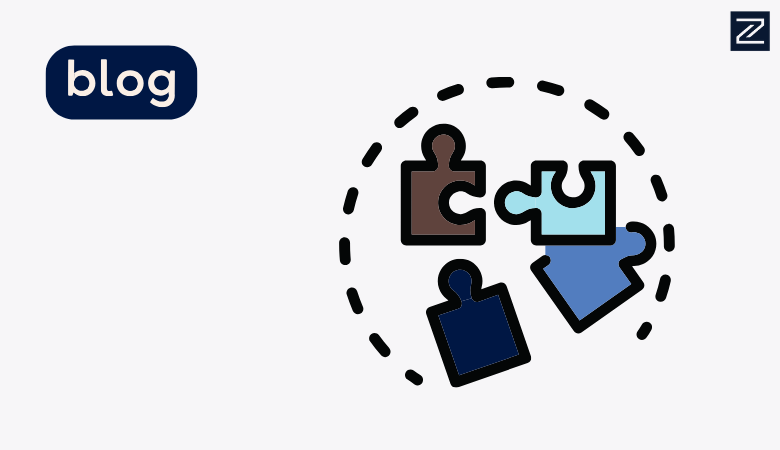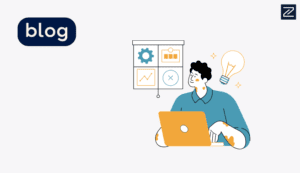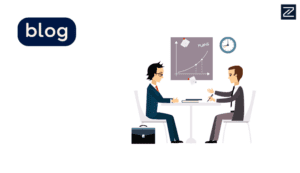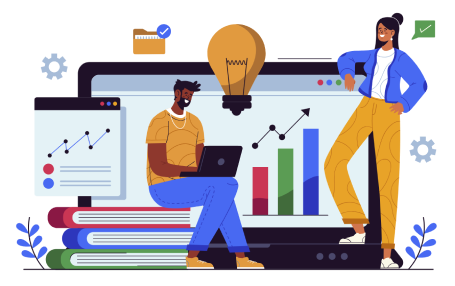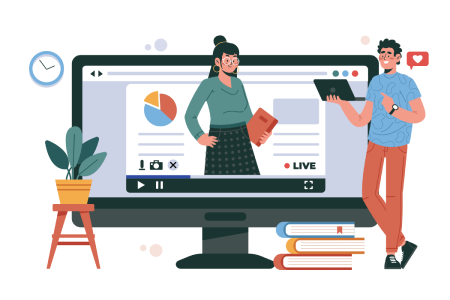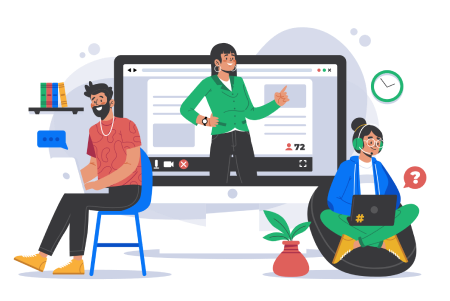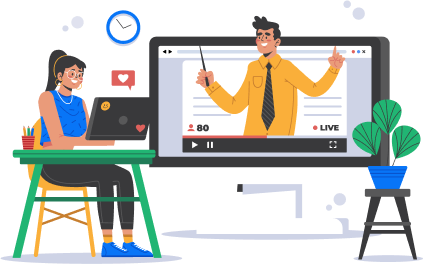There’s a fascinating journey our brains undertake when acquiring a new skill. The mastery over any new skill is not achieved overnight. Instead, the process of learning a new skill is gradual and ongoing. Mostly, our learning journey begins with unconscious ignorance, travels a path of conscious efforts, and culminates in unconscious competence, the stage where proficiency is achieved.
Take into consideration the skill of content writing. Whether you are an early career professional in a creative industry, part of a leadership team or building your own brand from scratch, this is a non-negotiable skill to have. If this is a new skill which you wish to acquire, you are sure to master it if you keep going through the different stages of competence that we’ll discuss in this blog.
The phases of shifts and growth that we go through in becoming competent at a new skill is very well explained by the “four stages of competence” model. The four stages of competence, also known as the four stages of learning, is a model based on the premise that before a learning experience begins, learners are unaware of what or how much they know (unconscious incompetence), and as they learn, they move through four psychological states until they reach a stage of unconscious competence (mastery).

The theory behind the four stages of competence was initially founded by Martin M. Broadwell in 1969. Later in the 1970’s, Noel Burch, from Gordon Training International, developed this theory further called the “the four phases for learning new skills”.
It’s a tool to help us understand our thoughts and emotions during the learning process. The model highlights two factors that affect our thinking as we learn a new skill: consciousness (awareness) and skill level (competence).
As you progress through the four different stages of competence, each stage will bring its own challenges and opportunities for growth.
In this blog, we delve deeper into these stages, exploring their characteristics and significance in our individual learning journeys.
Four Stages of Competence
Unconscious Incompetence (Ignorance)
We don’t know that we don’t have a particular skill or that we need to learn it.
The least stressful of all stages, the first of the four stages of competence is a state of unconscious incompetence. We have no idea how to do something. Most likely, we’re not even aware of all the things we don’t know. This can be due to ignorance, willful blindness or naivete. Sometimes we don’t believe that the skill in question is even a real skill and therefore doesn’t have to be learned. The term “ignorance is bliss” very well defines this psychological state.
Bringing back the example of content writing as a skill needed to build a brand from scratch, as a business or individual in this stage of ignorance, you do not recognise the sheer need to learn this skill.
If there is no immediate need to discover our own ignorance, this stage can last forever or end quickly. At any rate, once we progress we reach the stage of awareness.
Conscious Incompetence (Awareness)
We know that we don’t know and address our ignorance
At the stage of conscious incompetence, we become aware of our skill/knowledge gap. Coming to terms with what we don’t know is a significant step to starting the learning process. Even at this stage, we still have no idea about what we’re doing. But the analytical part of our brain takes over and is aware of our weaknesses. We begin to recognise our deficit and are willing to improve.
At this stage, we have a more realistic idea of our own limitations. While we do not acquire any new skill at this point, we realize that a skill can be learnt. This realization propels us to the next stage of conscious competence. It is in this stage that an individual realizes the need for them to acquire the skill of content writing to build their brand or business.
A challenge in progressing towards the next stage from this stage could be the imagination that the skill we wish to learn is unattainable. One must not give into these thoughts.
Conscious Competence (Learning)
We actually know what we are doing
Conscious competence is the third of the four stages of competence. We finally learn something new and are aware of our strengths. We understand what we’re doing and can explain how and why something works. This stage is achieved through practice and experience. Consciously competent learners tend to function well as long as they can concentrate on the task at hand.
In this stage, learners earn confidence and value from their skill, and typically seek more value through refinement and continued practice. This is a very useful stage to be in. It’s where most of the work happens. It’s also where all of our growth comes from. Learners in this stage know what they’re doing and why they do it, and such consciously competent people make good teachers. The Feynman Technique, a learning method that promotes learning through teaching, is built on the very idea that conscious competence and the ability to teach are closely intertwined.
The individual once ignorant of the need to possess content writing skills acquires it in this stage and uses it to market their business in a better way (even generates revenue out of this skill).
Unconscious Competence (Mastery)
We don’t know that we know
The final stage of the competence hierarchy is the psychological state of unconscious competence. The learner has had so much practice with a skill that it becomes “second nature” and can be performed easily. It becomes a part of our authentic self. As a result, the skill can be performed while executing another task. The learner may be able to teach it to others, depending upon how and when it was learned.
There are many expressions for this state of mastery. We act from muscle memory. We’re in the zone, in a state of flow. We’re Zen, as philosopher Alan Watts would describe it. Due to extensive practice and experience, we don’t need to think about what we’re doing anymore. We just do it.
Once we have achieved this level of mastery, say in learning the skill of content writing and using it to expand our business, we push our skill to the next limit in order to discover new fields for growth. We may use it to help other businesses grow, become a trainer of this skill or start an agency of our own.
Learning and mastering a new skill is challenging. However it can be done with identifying a skill gap, making a plan to acquire it and consistent practice. By acknowledging the states of competence(s) we are in, we provide ourselves with better avenues of learning.
One important thing that learners should keep in mind is that these four stages of competence are not necessarily linear. There are a myriad of domains and skills within any given field of expertise. We seem to be moving back and forth between the stages as we discover our blind spots. Sometimes we may even be simultaneously ignorant about one aspect of a skill while having mastered another.
At Zenfide, we focus on providing top-knotch services that help you (an individual or an organization) identify a knowledge gap, learn a new skill and master it. Book a demo with us today to know about our curated services.

